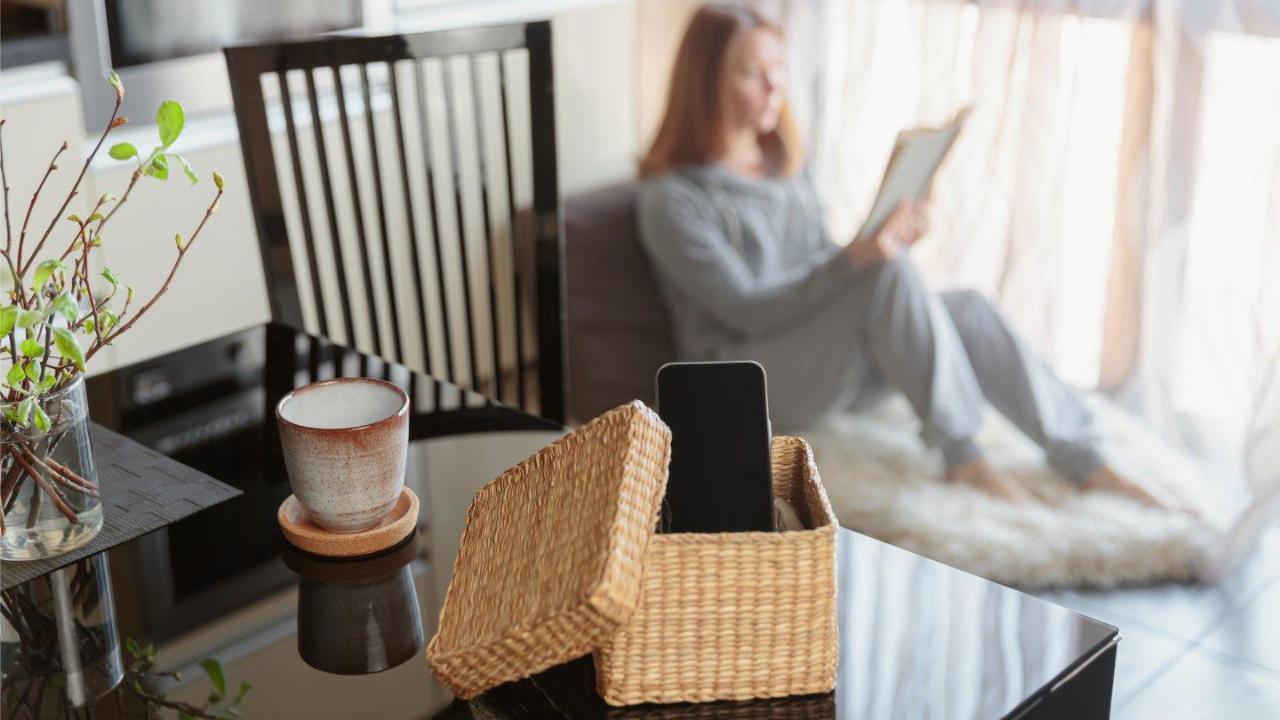In our fast-paced world, finding clarity and purpose in daily routines has become increasingly important. Minimalism offers a refreshing approach to life that focuses on what truly matters while eliminating excess. This philosophy isn’t about deprivation but rather about creating space for joy and meaning in our lives. Let’s explore how simple minimalist habits can transform your everyday experience.
The Essence of Minimalism in Modern Life
Minimalism goes far beyond the aesthetic of bare white walls and sparse furniture that social media often portrays. At its core, minimalism is a mindful approach to living that encourages us to question what adds value to our lives. Casa Jedo embraces this philosophy by focusing on intentional choices that enhance our living spaces and daily experiences rather than complicate them.
Defining true minimalism beyond trends
True minimalism isn’t about following rigid rules or achieving a particular look. Instead, it’s about discovering what aspects of life bring you genuine joy and purpose, then structuring your environment and habits around these priorities. This personal interpretation makes minimalism accessible to everyone, regardless of living situation or personal style preferences.
Core principles that drive minimalist philosophies
The minimalist lifestyle is built on several foundational principles that guide decision-making. These include intentionality in choices, appreciation for quality over quantity, and the recognition that our possessions should serve us rather than burden us. By embracing these principles, we create space not just in our physical environments but also in our minds and schedules.
Morning Rituals for a Clutter-Free Mind
How we begin our day sets the tone for everything that follows. Minimalist morning routines focus on creating calm and clarity rather than rushing through a series of stressful activities.
Simple wake-up practices that set intentional days
Starting your day with purpose might include waking up slightly earlier to enjoy quiet moments before the demands of the day begin. This could involve sitting with a cup of tea, practicing five minutes of meditation, or simply taking deep breaths while setting intentions for the day ahead. These small practices create a foundation of mindfulness that can carry through your entire day.
Digital detox strategies to start your day mindfully
Many of us reach for our phones first thing in the morning, immediately filling our minds with information and demands. A minimalist approach involves creating boundaries around technology use, perhaps keeping devices out of the bedroom or establishing a rule of no screen time until after completing a morning routine. This allows your mind to wake up gradually and intentionally rather than immediately responding to external stimuli.

Streamlining Your Physical Space
Our physical environments significantly impact our mental state. Creating spaces that feel open, functional, and peaceful can transform how we experience our homes and workplaces.
The one-in-one-out rule for maintaining balance
Once you’ve decluttered your space, maintaining that order becomes the next challenge. The one-in-one-out rule offers a simple solution: for every new item that enters your home, another must leave. This practice prevents the gradual accumulation of possessions and encourages thoughtful consideration before bringing new items into your space.
Creating functional zones that serve multiple purposes
Minimalist spaces make efficient use of every area. By designating zones that can serve multiple functions, you maximize utility without needing more space or furniture. For example, a dining table might also serve as a workspace during the day, or a guest room might double as a meditation space when not in use by visitors.
Minimalist Approach to Nutrition
Applying minimalist principles to food and meal preparation can simplify decision-making while improving overall nutrition and reducing waste.
Whole food focus with fewer ingredients
Minimalist cooking emphasizes quality ingredients prepared simply. Meals built around whole foods with minimal processing not only support health but also simplify shopping and preparation. This approach celebrates the natural flavors of foods rather than masking them with complicated techniques or excessive seasonings.
Meal planning systems that reduce decision fatigue
Decision fatigue can drain our mental energy throughout the day. Creating simple meal planning systems eliminates the daily question of what to eat. Approaches might include rotating through a limited menu of favorite meals, batch cooking staples for easy combinations, or designating certain days for specific meal types.
Capsule Wardrobes and Simplified Style
Our clothing choices represent a significant area where minimalist principles can create immediate benefits in terms of time, space, and decision-making.
Building versatile clothing collections with fewer pieces
A capsule wardrobe consists of a limited number of versatile, high-quality pieces that can be mixed and matched easily. This approach focuses on items that truly fit well and make you feel confident. By curating a smaller collection of clothing you genuinely enjoy wearing, you eliminate the frustration of searching through overstuffed closets while still having plenty of outfit options.
Seasonal rotation techniques for maximum utility
Even with a minimalist wardrobe, seasonal changes require different clothing options. Implementing a system for rotating seasonal items keeps your active wardrobe manageable while ensuring appropriate options are available when needed. This might involve storing off-season items in underbed containers or using the back section of your closet for pieces not currently in rotation.
Time Management Through Elimination
Perhaps the most valuable resource we can simplify is our time. Minimalist approaches to scheduling and commitments create space for what truly matters.
Identifying high-value activities worth your energy
Not all activities contribute equally to our wellbeing and goals. Regularly evaluating how you spend your time and identifying which activities provide the greatest return in terms of joy, purpose, or progress allows you to focus your energy more effectively. This might mean declining certain invitations or stepping back from commitments that no longer serve your current priorities.
Setting boundaries with calendar blocking methods
Calendar blocking involves designating specific time periods for different types of activities rather than trying to multitask or squeeze in tasks whenever possible. This method creates clear boundaries around work, personal time, and other commitments while building in transitions between activities. The result is a more intentional approach to time use that reduces stress and increases focus.
Mindful Consumption Practices
How we approach shopping and acquiring new possessions plays a crucial role in maintaining a minimalist lifestyle.
The 30-day rule for potential purchases
Impulse buying often leads to regret and unnecessary accumulation. The 30-day rule suggests waiting a full month before making non-essential purchases. If after thirty days you still feel the item would add value to your life, you can proceed with confidence. This cooling-off period eliminates many purchases that would otherwise become clutter.
Finding joy in experiences rather than possessions
Shifting focus from acquiring things to creating memories offers a more satisfying approach to spending resources. Experiences like taking a cooking class, hiking in nature, or enjoying live music create lasting happiness without adding to physical clutter. This mindset change represents one of the most powerful aspects of minimalist living.
Financial Minimalism
Applying minimalist principles to finances creates clarity and reduces stress around money management.
Zero-based budgeting for clearer priorities
Zero-based budgeting requires assigning a purpose to every dollar of income before the month begins. This approach creates complete awareness of where money goes and ensures spending aligns with true priorities. Unlike traditional budgeting that might leave undefined funds, zero-based budgeting creates total intentionality around financial decisions.
Automation systems that simplify money management
Setting up automatic systems for bill payment, savings contributions, and investment transfers removes the mental burden of remembering financial tasks. These automations ensure consistency in financial habits while reducing the time spent on money management. The result is peace of mind knowing that important financial responsibilities are being handled without constant attention.

